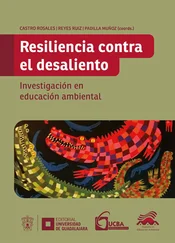There was no reaction from her.
“Are you going somewhere in particular?”
“No,” she said as we turned the corner into Séptima. “I just felt like a walk.”
On we went.
It was a cool morning; the asphalt and the grass were still wet from the rain overnight. There seemed to be more grackles in the trees than usual.
“Those birds make such a racket,” she said.
“It’s the season. They’re mating.”
She looked at me. I think she was impressed by my ornithological knowledge. “Are you interested in birds?”
“I’m interested in most things.”
She nodded impatiently.
“Do you live on your own?”
“Yes. Well, no. I live with my father.”
I hadn’t been expecting that. We took a few more steps in silence.
“How old’s your father?”
The smile that spread across her face seemed to be laden with sadness. “He’s very, very old.”
“Eighty?”
“Are you always so nosy?”
“I’m not, actually. Do you live round here?”
“Stop, will you?”
“Sorry. No more questions.” A few moments later, I asked:
“Am I bothering you tagging along like this?”
“No, no. Not at all,” she said indulgently.
We were on Quinta by this stage. We turned left and then left again.
“Why are you tagging along like this?”
I answered without thinking: “I find you attractive.”
“That’s what I thought. You’re not the first, you know.”
We had stopped in front of a blue metal door with a little sign that read: Pensión Carlos.
“This is where I live,” she said. She held out her hand, smiling. “Goodbye.”
She turned away, and her profile looked so hard I felt a sharp pain in my stomach.

From then on, my days began to gravitate around the Pensión Carlos. I made a detour past it on the way to and from the bookstore; on my days off, I took breaks from writing and went for walks that always ended up leading me, by a more or less circuitous route, back to that calm and shady street. But I didn’t run into her again, until one Monday afternoon she reappeared at the bookstore.
She looked radiant in a canary-yellow dress; her skin was deeply tanned, with a subtle moist sheen from some kind of cream, and her thick black hair hung loose on her broad shoulders. As she came in she took off her sunglasses and greeted me with a smile and a resonant “Hi.”
I felt an electric current running through me, quickening my blood, along with the usual fluttering. “Welcome back. I thought I wouldn’t see you again.”
“How are things?” She walked up to the cash register and stood there in front of me, still smiling. “I came for the reading. Am I very early?”
I looked at the clock on the wall. “The reading’s at six. No, you’re not too early.”
There was a guy browsing, a guy I detested for no particular reason, apart from the fact that he existed, even though he was one of our best clients and bought three books a month on average. Permanently burdened with jacket, tie, and halitosis, he was an economist and a lawyer, and he wrote a weekly column for one of the local newspapers. I wished he would clear out, and as if under the power of a magic spell, he put the volume he was holding back on the shelf and headed for the door, unhurriedly, reading the titles of some of the new books laid out on the tables. Eventually he left, but not before glancing at me with his little ratty — or foxlike — eyes.
“Is this the program?” she said, pointing to a poster stuck on a column beside the cash register. “Blue-eyed poets, eh?”
“It was their idea.”
“OK.” She tilted her head; she didn’t seem convinced. “Are they good?”
“I’m no expert. They’re poets. They have their moments, or their instants, anyway.”
She laughed. “All right, I’ll stay.”
“They won’t be long.” I shut the book I was holding.
“What are you reading?” she asked me.
“Kenko, aphorisms.”
“Can I see?”
I handed her the book. She opened it at random, somewhere in the middle.
She read: “It is best not to change something if changing it will not do any good.”
“Well, that seems obvious,” she said.
“Aphorisms often do, don’t they?”
“How about this one: ‘The priest known as the Burglar Bishop lived near Yanagihara. His frequent encounters with burglars gave him the name, I understand.”’
“It doesn’t seem like an aphorism.”
She went on: “It is unattractive when people mingle in a society which is not their habitual one, whether it is an easterner among people from the capital, a man from the capital who has gone east to make his fortune, or a priest of either an exoteric or esoteric sect who has left his original faith.”
She closed the book and handed it back to me. She seemed disappointed. “That’s really just a prejudice,” she said, and I agreed.
“It was written in the fourteenth century. What can you expect?”
“It’s still a prejudice,” she said, “the way stupidity is always stupid.”
I smiled again. “You’re pretty severe.”
“I’m one of those people who likes to mingle in a society that is not my habitual one,” she replied.
“Then Kenko was wrong, because it’s hard to imagine a more attractive person than you.”
Her expression changed. Now she looked like a little girl who had just done something extremely clever.
“Thank you,” she said, looking into my eyes, her head lowered slightly and her shoulders slightly hunched.

The blue-eyed poets arrived: seven young people, three of each sex and one of both. They read. Only one of them had any “moments”; the thief and I agreed about that. Otherwise the reading — as a lucid but envious critic later wrote — was as mechanical as a washing machine. The “blue eyes” were ironic; the poets wore colored contact lenses.
When it was over, I returned to the cash register, and she went to join the audience and the poets at the bar that we’d set up in the reading space. I saw her leaf through two or three of the little blue chapbooks that the poets had put on sale for the occasion — produced with greater taste and care than the texts they contained, as the critic was to write — and I guessed that she would take one without paying.
I was glad she stayed when I said I was closing the store. I was putting some copies of the little blue book on the table where we displayed curiosities. She came over.
“You didn’t take one, then?”
“You can search me,” she said.
“Really?”
She nodded, and all my blood went rushing to one place.
I reached out with my index finger extended and held it half an inch from the red button that worked the security grille.
“Close it,” she said.
I pressed the button and the grille came down noisily.
When it was quiet, I asked her to lift up her arms, and she obeyed. We were face to face. I ran my hands gently over her sides, frisking her as I supposed a security professional would, in a methodical and conscientious way, from top to bottom, from bottom to top.
“Satisfied?” she asked.
I didn’t laugh. “Well, actually, no.” My voice faltered.
“Would you like to continue?” she asked.
“Yes.”
“Go ahead.”
“Really?”
“Yes, stupid, really!”
I stood behind her and ran my hands over her neck, her back, her legs, which she spread cooperatively, and finally over her buttocks and the inside of her thighs.
“Satisfied now?”
Читать дальше













